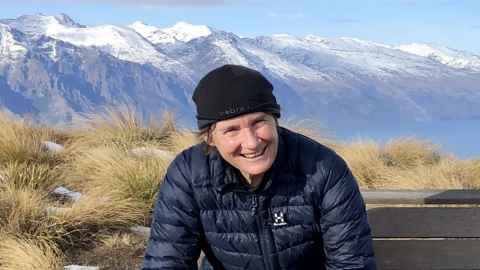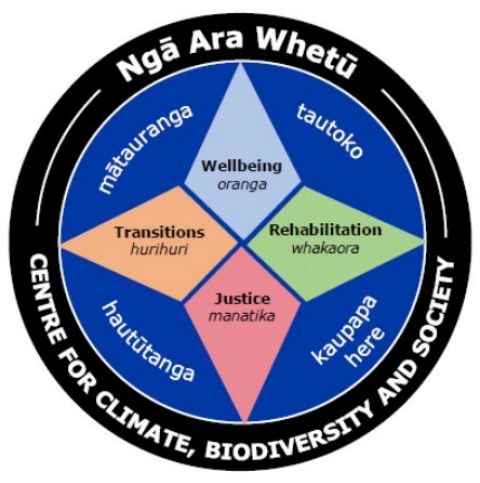Introducing Ngā Ara Whetū: Centre for Climate, Biodiversity and Society
28 September 2022
The University has committed substantial funding towards establishing a flagship cross-faculty research centre to respond to the pressing environmental and humanitarian challenges of our time.

Exceptional actions are underway internationally to address the unfolding climate catastrophe that die-hard deniers must be struggling to ignore. In August, the US Senate passed a sweeping economic package that includes major legislation on climate change with the aim of cutting their country’s carbon emissions by 40 per cent by 2030.
In a landmark and far-reaching move in late July, the United Nations General Assembly recognised that a clean, healthy and sustainable environment is a universal human right: it is essential for our survival. As articulated in the UN brief: member states, including Aotearoa New Zealand, “face a stark choice: to respect and uphold this right by taking action to address today’s multiple planetary crises, or to delay and obfuscate”.
The urgency of this call to action couldn’t be clearer but change is challenging. We are in a time of increasing social fragility. Rising inequality and longlived injustices, exacerbated by pandemics, inflationary pressures, upheavals in social norms, changing climate, and environmental degradation, create fertile ground for conflict. If we are to meet the UN’s challenge, we cannot leave anyone behind.
Working beyond traditional University borders for local and global impact, the Centre recognises that its three pou – climate, biodiversity and society – are inseparable from each other and must be treated together.
Waipapa Taumata Rau University of Auckland is committed to supporting Aotearoa New Zealand to act. Over the last 12 months, researchers with expertise in law, the social, natural and health sciences, engineering, and economics, have worked together to build a new flagship University research centre – Ngā Ara Whetū: Centre for Climate, Biodiversity and Society. Hosted by the Faculty of Science and co-hosted by the Faculties of Arts, Engineering, and the Business School, Ngā Ara Whetū provides an enabling mechanism to connect the University’s research strength with knowledge and wisdom of ngā iwi Māori, interested parties, and collaborators to reduce climate risk, enhance resilient and biodiverse spaces, and create fairer and healthier societies.
Working beyond traditional University borders for local and global impact, the Centre recognises that its three pou – climate, biodiversity and society – are inseparable from each other and must be treated together. Professor Jacqueline Beggs (Ngāti Awa), Director (Research) for Ngā Ara Whetū, said, “Aotearoa needs to think more holistically about our options. Solutions such as biofuels may seem appealing, but the impact on forest clearance and biodiversity in developing nations has been devastating.”

Professor Niki Harré, an expert in sustainability in the School of Psychology and Director (Training) for Ngā Ara Whetū, said, “A key focus for this Centre will be looking for social solutions – how to work with communities to implement positive change. We will provide opportunities for our students and new researchers to be part of transdisciplinary teams that tackle problems together.”
David Noone, Buckley Glavish Professor of Climate Science in the Department of Physics, and Director (Partnerships and Engagement) for Ngā Ara Whetū, said the new Centre leverages disciplinary depth and connects across boundaries to meet urgent societal challenges: “We need transdisciplinary research centres like this one to put core science knowledge and understanding into practical nature-based, cleantech and social solutions that support society to respond to climate and environmental change.”
The University has committed $1.25m in funding over five years to establish Ngā Ara Whetū: Centre for Climate, Biodiversity and Society.
ASSOCIATE PROFESSOR JR ROWLAND
Deputy Dean of Science,
University of Auckland
inSCight
This article appears in the 2021 edition of inSCight, the print magazine for Faculty of Science alumni. View more articles from inSCight.
Contact inSCight.